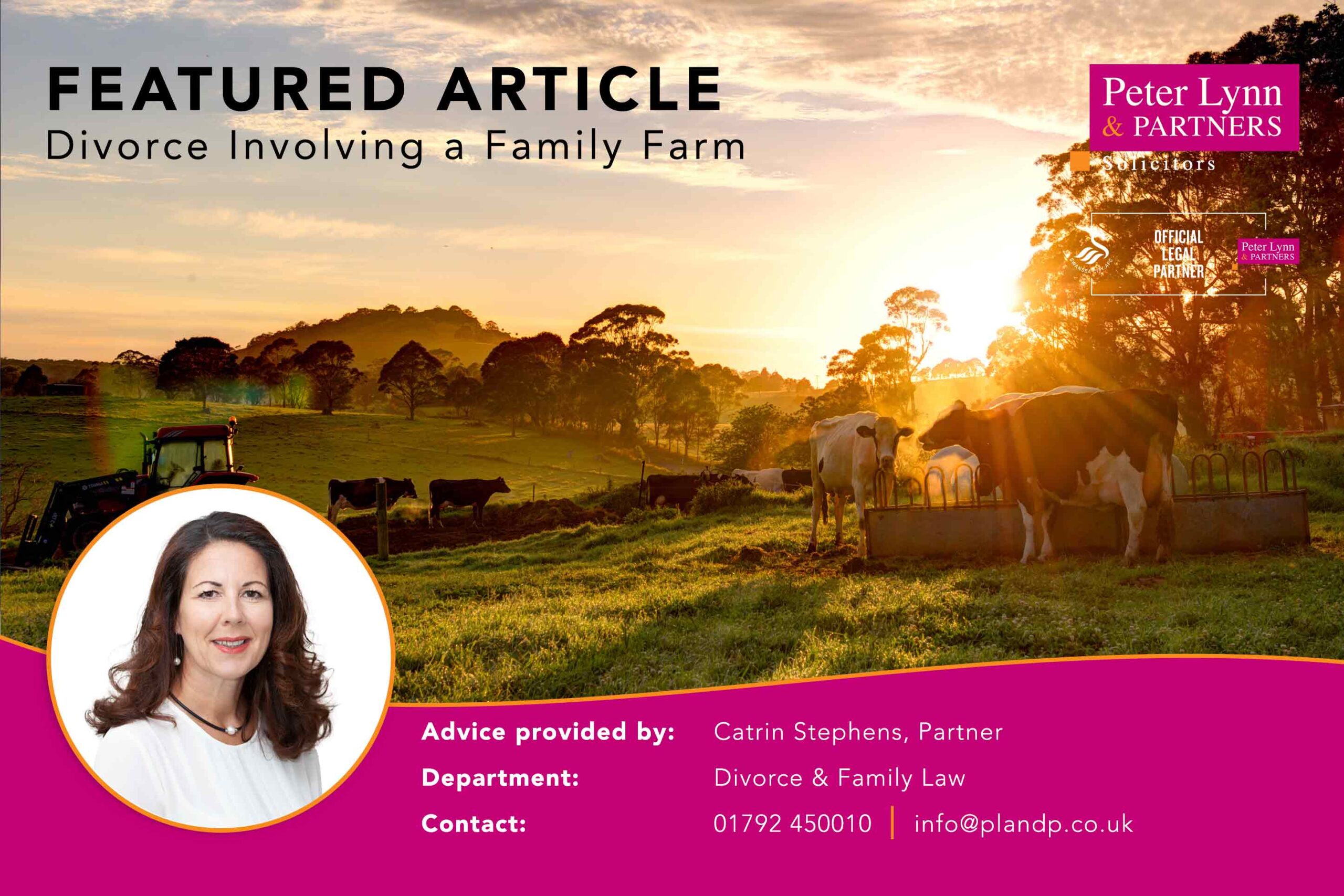Navigating Divorce in the Context of a Farming Business

Divorce is a complex and emotionally charged process, more so when it involves the division of a family business that has been nurtured over generations.
The unique challenges faced by farming families during divorce proceedings require specialised legal expertise to ensure a fair and viable resolution.
A recent case handled by Catrin Stephens of Peter Lynn and Partners Solicitors exemplifies how these complexities can be navigated with sensitivity and precision, particularly when the business in question is not just a livelihood, but a legacy.
The client, a farmer, was at the helm of a substantial arable farm in England, which also encompassed a livery business.
This farm wasn’t merely a business; it was a heritage, passed down from his grandparents to his father, and then to him. With hopes of continuing this tradition by passing it on to his son, the farm represented not just years, but generations of dedication, sacrifice, and hard work.
However, the dissolution of his long-standing marriage introduced a formidable challenge. With three adult children and a significant family business at stake, the proceedings were fraught with considerations of inherited wealth, the equitable contribution of parties, and the fair division of assets.
The case underscored the unique nature of divorces involving farming businesses, where equal division of assets does not always equate to fairness or viability for the business’s future.
At Peter Lynn and Partners, we approached the case with a nuanced understanding of its complexities.
We recognised that farming cases are inherently different due to their dynastic elements and the deep interconnection between family and business assets.
The emphasis was on balancing the immediate needs of our client’s wife, particularly regarding housing and income, against the long-term viability of the farm post-divorce.
This required a careful consideration of the farm’s operational continuity, the inherited wealth, and the cumulative contribution of the husband’s family towards building the business.
Our argument was predicated on the understanding that an equal division of assets could jeopardise the future of the farm, potentially dismantling a legacy built over three generations. Instead, we advocated for a settlement that, while favouring our client, also respected the contributions and needs of both parties.
The outcome was a testament to our firm’s expertise in handling such sensitive and complex matters, achieving a settlement that allowed the farming business to remain viable and continue as a family legacy.
Conclusion:
This case highlights the importance of engaging solicitors with specialised expertise in divorces involving farming businesses.
At Peter Lynn and Partners, we offer not just legal representation, but a deep understanding of the unique challenges faced by farming families.
Our approach is tailored to ensure that while the immediate needs of both parties are met, the farming business’s future and its potential to continue as a family legacy are preserved.
Divorce is never easy, but with the right legal expertise, it’s possible to navigate these turbulent waters while keeping a family’s heritage and livelihood intact.
If you’re in a similar situation and require expert legal advice, arrange a confidential initial meeting with Catrin Stephens by contacting:
01792 450010